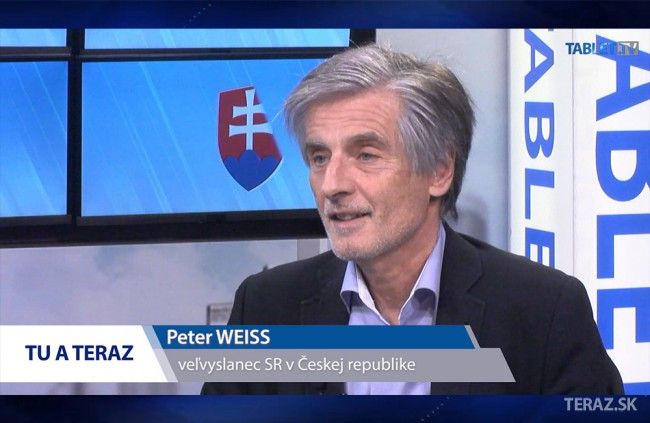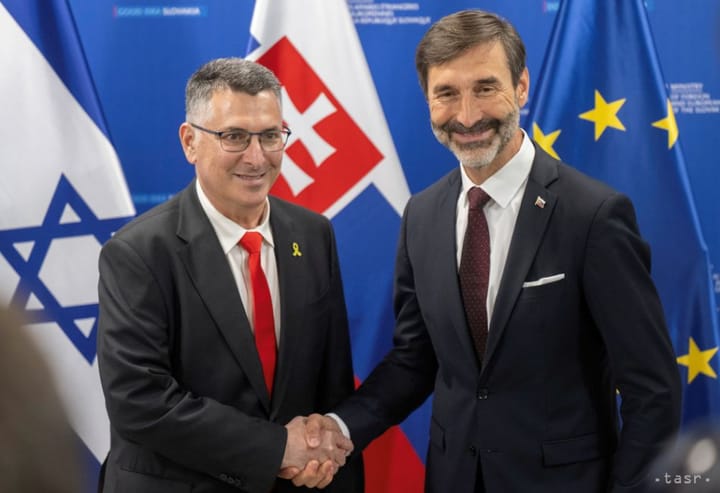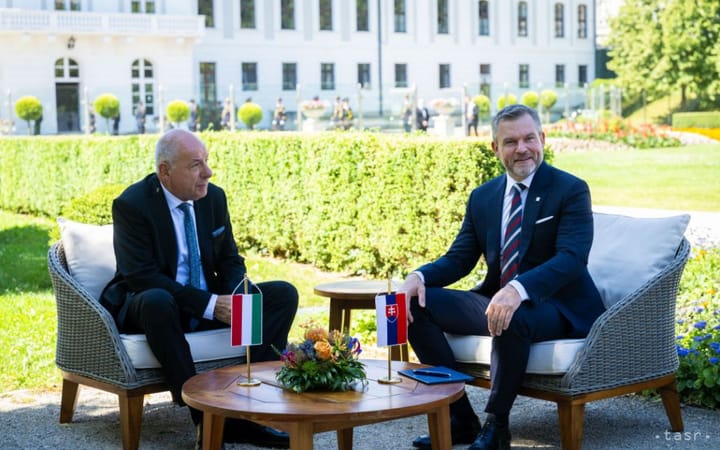Weiss: Czechoslovakia Was Successful Project

Bratislava/Prague, September 12 (TASR) – The Czechoslovak Republic was a very good project that resulted in the beginning of close cooperation between two successful states in Europe – Slovakia and the Czech Republic, Slovak Ambassador to the Czech Republic Peter Weiss has told TABLET.TV.
Therefore, Slovak Prime Minister Robert Fico (Smer-SD) and his Czech counterpart Bohuslav Sobotka have agreed on celebrating the 25th anniversary of the two countries’ independence in 2018 under a Year of Czecho-Slovak Intercommunity.
Apart from that, 2018 will also be the 50th anniversary of the Prague Spring of 1968 and the 100th anniversary of the establishment of Czechoslovakia in 1918. The latter will be celebrated on October 28, 2018 in Prague and on October 30 in Martin (Zilina region), where a Slovak political body called the Slovak National Council agreed to joining Czechoslovakia.
“By the way, we should be exact in terms of history. Both Slovakia and the Czech Republic were set up on January 1, 1969, based on a constitutional law on the Czechoslovak federation. In 1993, again based on a constitutional law – on dividing the federation – they gained full independence and became entities of international law. The Czechoslovak federation was both set up and ceased to exist in the same way – via a constitutional law,” said Weiss, adding that the Slovak Republic wasn’t established in 1993, but it became independent then.
According to Weiss, the division of Czechoslovakia wasn’t the result of manoeuvring by politicians but of different public opinions on the shape of the common state in the two parts of the federation.
“In polls, around one half of respondents were in favour of preserving the common state, but even these people didn’t have a common opinion on how Czechoslovakia should look,” said Weiss, noting that Czechoslovakia split peacefully at a time when Yugoslavia and the Soviet Union were breaking up violently.
“In Bohemia, 29 percent of people preferred a unitary state, i.e. Czechoslovakia without the federation – with a single government and a single parliament. Meanwhile, 21 percent of Czech people were in favour of a federal arrangement featuring regions like in Austria and Germany – it wasn’t a federation of national states. In other words, half of Czech people rejected the federation or it rejected a federation on the national principle. Only 28 percent of Czech people were for a federation, 5 percent for a confederation and 13 percent were for the establishment of two independent states. In Slovakia, 11 percent were for a unitary state. Many people forget now that part of those people who were passionately defending the preservation of the common state were for a defederalised Czechoslovakia. Only 6 percent of Slovaks were for a federal republic [of regions], 26 percent for a federation, 31 percent were for a confederation, and 18 percent for two independent states. This means that there were irreconcilable differences in opinions on the shape of the common state,” said the Slovak ambassador in Prague.
Weiss believes that it doesn’t make any sense to speculate nowadays who’s guilty for the break-up of Czechoslovakia, but instead to recall Czechoslovakia as a successful project that has been beneficial for both current states. He noted that Slovaks and Czechs tend to take good mutual relations for granted, but it isn’t so commonplace worldwide.
“This year has featured the jubilee fifth joint session of the Czech and Slovak Governments. This is a practical example of our above-standard relations. There’s hardly a parallel anywhere in the world with cabinets sitting in full line-up together, debating a bilateral agenda, cooperating within the European Union and the Visegrad Four (the Czech Republic, Hungary, Poland and Slovakia),” said Weiss in reference to the joint session in Lednice, the Czech Republic earlier this month.



